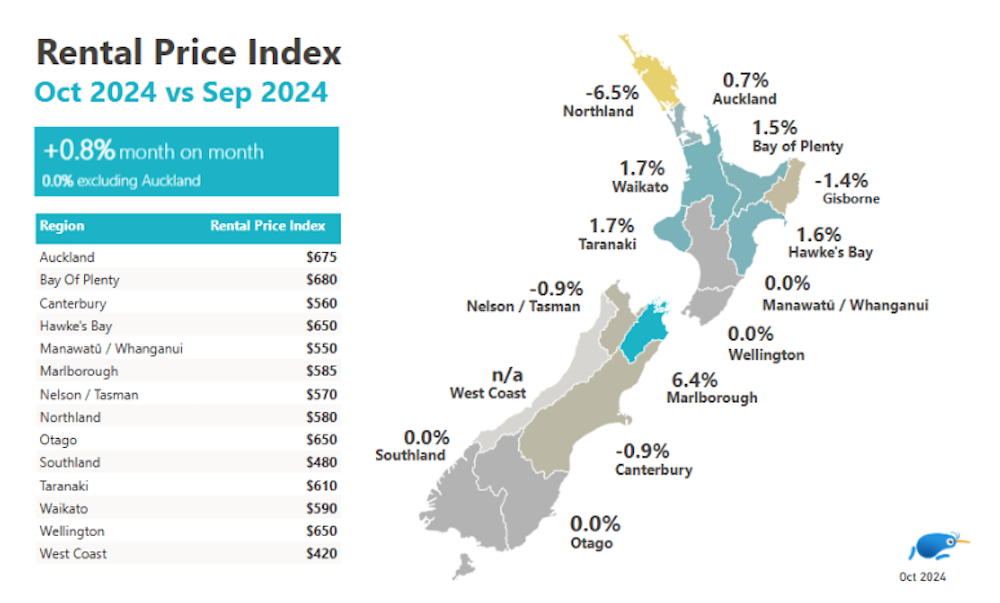Rental Prices Rise After September Drop
Staff Reporter
17 November 2024, 1:01 AM
 New Data Shows Rental Price Changes
New Data Shows Rental Price ChangesLocals across the Hibiscus Coast and New Zealand are witnessing an upward shift in rental prices as October’s figures indicate a national median rent increase.
According to Trade Me Property’s latest Rental Price Index, the median weekly rent reached $635 in October, marking a $5 (0.8%) rise from September’s eight-month low.
Among regions, Bay of Plenty now stands as the country’s most expensive place to rent, surpassing Auckland with a median weekly rent of $680, $5 higher than the previous month.
Other regions also saw significant increases: Marlborough’s median rent climbed $35 (6.4%) to $585, Taranaki rose $10 (1.7%) to $610, and Waikato increased $10 (1.7%) to $590 per week.
In contrast, Northland experienced the largest monthly decline, with a $40 (6.1%) drop to $580.

Trade Me Property Customer Director Gavin Lloyd highlighted that this rental surge aligns with expected seasonal trends.
“It’s a seasonal trend we tend to see at this time. What is a little more unusual is increases at a time when demand is soft and supply is sky-rocketing,” he said.
High Supply and Lower Demand
October also brought a noticeable shift in supply and demand dynamics, with rental listings rising by 6.0% month-on-month, reaching a 10-year high.
In contrast, demand for rentals is now at a four-year low.
Mr Lloyd noted that these market conditions may benefit renters by offering greater choice and potentially stabilising rents in the months ahead.
Regions such as Gisborne and Marlborough are driving this high supply, with year-on-year listing increases of 321% and 136%, respectively.
While most regions saw declining demand, Gisborne (+106%) and Marlborough (+39%) bucked this trend.
Large Rentals See Price Decreases
In major cities like Auckland, Wellington, and Christchurch, larger rental properties with five or more bedrooms have seen a decline in median weekly rents.
Auckland and Wellington recorded drops exceeding 8%, while Christchurch saw a smaller decline of 2.9%.
As living costs continue to climb, many renters are sharing accommodations or seeking alternative ways to reduce expenses.
“Big rental properties, with their relatively bigger rents, simply don’t have the same appeal in the current market,” Mr Lloyd explained.
PROFESSIONAL SERVICES
AGENTS



